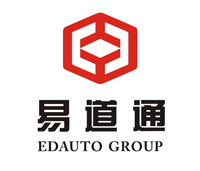Toyota Yaris ATIV Hybrid Sedan: A Fresh Alternative to the Competition
Toyota Motor recently announced that it will launch its lowest-priced hybrid model, the Yaris ATIV, in Thailand to counter competition from the rise of Chinese electric vehicle manufacturers. The Yaris ATIV, with a starting price of 729,000 baht (approximately US$22,379), is 60,000 baht less than Toyota’s most affordable hybrid model in the Thai market, the Yaris Cross hybrid. This move demonstrates Toyota’s keen understanding of market demand and its determination to break through in the face of fierce competition.
The Toyota Yaris ATIV hybrid sedan is targeted for first-year sales of 20,000 units. It will be assembled at its plant in Chachoengsao Province, Thailand, with approximately 65% of its parts sourced locally, a proportion expected to increase in the future. Toyota also plans to export the hybrid model to 23 countries, including other parts in Southeast Asia. These initiatives will not only strengthen Toyota’s position in the Thai market but also lay the foundation for its expansion into Southeast Asia.
Restarting electric vehicle sales: The return of the bZ4X SUV
In addition to launching new hybrid models, Toyota has also opened pre-orders for the new bZ4X all-electric SUV in Thailand. Toyota first launched the bZ4X in Thailand in 2022, but sales were temporarily suspended due to supply chain disruptions. The new bZ4X will be imported from Japan and will have a starting price of 1.5 million baht, an estimated price reduction of approximately 300,000 baht compared to the 2022 model.
The new Toyota bZ4X is targeted for first-year sales in Thailand of approximately 6,000 units, with deliveries expected to begin as early as November of this year. This move by Toyota not only reflects a proactive response to market demand but also demonstrates its continued investment and innovation in electric vehicles. With the rapid growth of the electric vehicle market, Toyota hopes to further solidify its position in the market by resuming sales of the bZ4X.
The Current Situation of Thailand’s Automotive Market and Toyota’s Response Strategies
Thailand is Southeast Asia’s third-largest auto market, behind Indonesia and Malaysia. However, due to rising household debt and a rise in auto loan rejections, auto sales in Thailand have continued to decline in recent years. According to industry data compiled by Toyota Motor, new car sales in Thailand last year were 572,675 units, a 26% year-on-year decline. In the first half of this year, new car sales were 302,694 units, a slight decrease of 2%. In this market environment, Toyota’s introduction of low-priced hybrid and electric vehicles is particularly important.
Despite overall market challenges, sales of electrified vehicles in Thailand have been robust. This trend has enabled Chinese electric vehicle manufacturers such as BYD to steadily expand their market share in Thailand since 2022. In the first half of this year, BYD held an 8% share of the Thai auto market, while MG and Great Wall Motors, both brands under Chinese automaker SAIC Motor, held 4% and 2%, respectively. The combined market share of major Chinese automakers in Thailand has reached 16%, demonstrating the strong growth of Chinese brands in the Thai market.
Japanese automakers held a 90% market share in Thailand a few years ago, but that has shrunk to 71% due to competition from Chinese competitors. Toyota, while still leading the Thai market with a 38% share, has seen a decline in pickup truck sales due to auto loan rejections. However, sales of passenger cars, such as the hybrid Toyota Yaris, have offset this decline.
Toyota’s resumption of sales of low-priced hybrid and electric vehicles in the Thai market signals its proactive response to fierce competition. As the market environment evolves, Toyota will continue to adjust its strategy to maintain its leading position in Thailand and Southeast Asia. How Toyota seizes opportunities in its electrification transformation will be crucial to its ability to remain competitive.
Overall, Toyota’s strategic adjustments in the Thai market are not only a positive response to market changes, but also a strong counterattack against the rise of Chinese electric vehicle manufacturers. By launching low-priced hybrid models and restarting electric vehicle sales, Toyota hopes to maintain its leading position in the increasingly competitive market.
Email:edautogroup@hotmail.com
Phone / WhatsApp:+8613299020000
Post time: Aug-25-2025



